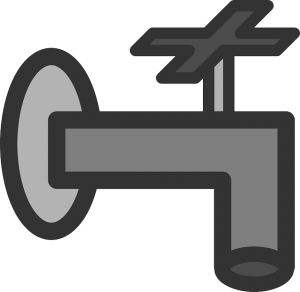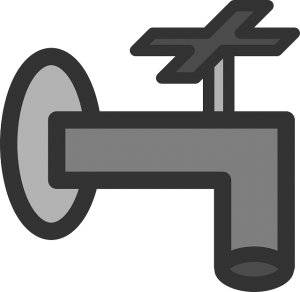While some people are DIY pros, and can resolve any home issue themselves, some people, well…aren’t. What would your first reaction be if you walked into your bathroom with 2 inches of standing water? Panic and scream? Grab the wrench? Call the professionals? Despite your reaction, we’re going to discuss 4 ways to prevent your worst home-plumbing nightmares.
Prevention is the Solution
1. Gas lines are plumbing too!-While connecting a new gas range or dryer may seem simple, things can go terribly wrong when you try to hook up a flexible gas connector to the line, only to see that the connector doesn’t fit or you can’t seem to make the connection tight (and you don’t want to risk the connection not being gas-tight). The simplest solution to this would be to purchase a universal connection kit for a dryer or gas range. This kit will include several adapters to use to transition from the pipe to supplying the gas to the appliance.
2. Be familiar with pipe location-Don’t get too carried away pounding nails and driving screws, because you may bust a supply or drain. To prevent this from happening, purchase a stud sensor that also detects pipes and wiring. If your attic is unfinished, you can look around to get a sense of the location of the pipes. If the wall you are remodeling will be covered, you can always (carefully) cut a test hatch to find wall plumbing.

3. Use sealant-The only things that don’t require sealant are a soldered or glued joint. Visit a plumbing supply store to purchase a brushable type, as opposed to the tape for sealing water or gas connections. The brushable types come in varieties formulated specifically for threaded plastic or galvanized steel. These varieties have a higher percentage of gap-filling solids and can better ensure a tight joint.
4. Avoid over-tightening-Most DIYers think that really (really) tight connections are better. Well, they’re wrong. A properly cut and fitted joint that’s been sealed doesn’t have to be overly-tightened. After bringing the parts together firmly (hand-tightened or with a wrench), all it takes is another half turn. Steel pipe is more forgiving to wrench damage from over-tightening, while brass-copper gas fittings can be especially vulnerable.
When in Doubt…
When in doubt, it is best to call us first (sorry to all you independent DIYers) to avoid home-plumbing nightmares. However, with a little bit of know-how you can use the above tips to avoid extreme disasters. Because no one likes to splash through their bathrooms first thing in the morning.
Have you entered our drawing for our Premier Service Club membership? We draw a winner monthly! For more information and to enter our contest click HERE or on the image below!





